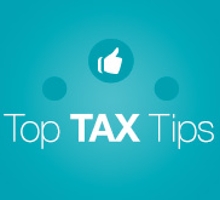Government to Reduce Charity Gift Aid Confusion
 The model Gift Aid declaration form is set to undergo an expansive improvement in the coming months thanks to the Government’s commitment to stop charities, especially small charities who are more likely to use the form, from losing out on billions of pounds worth of Gift Aid.
The model Gift Aid declaration form is set to undergo an expansive improvement in the coming months thanks to the Government’s commitment to stop charities, especially small charities who are more likely to use the form, from losing out on billions of pounds worth of Gift Aid.
The National Audit Office (NAO) estimates that Gift Aid wasn’t used in donations worth approx. £2.3 billion. Though the NAO recognise that not all of these donations would have been eligible for Gift Aid, it’s a fair assumption that a vast number of them would have been.
Speaking on the issue, Exchequer Secretary to the Treasury Priti Patel said:
Gift Aid is an important tax relief for charities which helps to provide essential revenue to charitable causes. This research shows that there is more that government can do to boost eligible donations which is why we are simplifying the declaration forms to make sure donors understand when they’re eligible so that charities can maximise the financial donations they receive.
Accessing Your Annual Tax Summary
 Earlier this month the Government started sending out an Annual Tax Summary to over 24 million people across the UK breaking down exactly how their tax payments are spent by Chancellor of the Exchequer George Osborne.
Earlier this month the Government started sending out an Annual Tax Summary to over 24 million people across the UK breaking down exactly how their tax payments are spent by Chancellor of the Exchequer George Osborne.
Of this number, the eight million individuals who complete self-assessment returns will be able to see their break-down online immediately, while sixteen million PAYE taxpayers will receive their break-down in the post within the next four weeks (if they haven’t already) if they received a tax coding notice from HMRC for tax year 2013 to 2014.
Speaking on the issue, Mr. Osborne said:
I promised that taxpayers would know much more about how much direct tax they pay and how that money is spent. Now we’re delivering on that promise by giving 24m taxpayers a new personal tax summary. It is a revolution in transparency and it will show how hardworking taxpayers have to pay for what governments spend.
Working as a CIS Subcontractor
 The Construction Industry Scheme (CIS), a scheme overseen by HMRC, creates and governs the rules for how subcontractors performing construction work should be paid by their contractors.
The Construction Industry Scheme (CIS), a scheme overseen by HMRC, creates and governs the rules for how subcontractors performing construction work should be paid by their contractors.
Though the scheme was developed with mainstream contractors and subcontractors in mind, it’s since been adopted by large companies and organisations spending a significant annual sum on construction costs that can, therefore, also be deemed to be contractors.
If you’re working as a subcontractor in the construction industry, and you believe there’s a chance you may be deemed as such under CIS, HMRC have produced a simple guide to instantly determine your status.
If you do fall under CIS, speak with your accountant to determine whether you should…
Read more
Benefit Overpayments Fall by £100m; Now Lowest Ever
 During the last tax year overpayment error in the benefit system fell by £100 million, according to new figured released by the Government earlier this month.
During the last tax year overpayment error in the benefit system fell by £100 million, according to new figured released by the Government earlier this month.
The Government expects these errors to fall even further come tax year 2014-15 (and beyond) due to the introduction of Real Time Information (RTI) in August, a system (which we first covered back in December of last year) that allows all benefit claims to be cross-checked against earnings and pension income from HMRC the moment each benefit payment is made.
Read more
New Tax Treatment of Workers Supplied via UK Agencies
 Earlier this year HMRC published detailed guidance on the (then) upcoming changes in the tax treatment of workers supplied through UK agencies, employment businesses, or other intermediaries.
Earlier this year HMRC published detailed guidance on the (then) upcoming changes in the tax treatment of workers supplied through UK agencies, employment businesses, or other intermediaries.
These new rules, which came into effect on 6 April 2014, were brought about due to changes made in Finance Bill 2014, and they only affect workers who have in the past been provided to their end clients via a third party on a self-employed basis.
Read more
The Health and Wellbeing Tax Plan: Late Disclosures
 Launched on 7 October 2013, The Health and Wellbeing Tax Plan was designed as a voluntary disclosure opportunity to allow health and wellbeing professionals with income or gains not yet disclosed to HMRC to make a full disclosure by 6 April 2014 to bring their tax affairs up to date.
Launched on 7 October 2013, The Health and Wellbeing Tax Plan was designed as a voluntary disclosure opportunity to allow health and wellbeing professionals with income or gains not yet disclosed to HMRC to make a full disclosure by 6 April 2014 to bring their tax affairs up to date.
HMRC provided ample literature regarding their Health and Wellbeing Tax Plan ahead of its launch and during the period in which health and wellbeing professionals could benefit from it. It was made clear that should you have undisclosed income or gains, and you choose not to take part in the voluntary disclosure opportunity, if HMRC later find out about your undisclosed income or gains any penalty you receive would be significantly higher.
Read more
Tax Tips and News for November 2014
This issue … Pensions Death Tax, Taskforce at Large, National Insurance Contributions, Mini One Stop Shop (MOSS), November Questions and Answers, November Key Tax Dates
Pensions Death Tax
Currently, if you die before you have started to draw your pension, the value of your pension fund will not usually be subject to inheritance tax (IHT) at 40%, as it is excluded from your estate. However, there can be a 55% tax charge where your pension fund is passed to someone else under your will, especially if you die aged over 75.
From 6 April 2015 the 55% tax charge will be abolished. If you die before you reach age 75 you will be able to pass on your pension fund on death to any one you choose without a tax charge. The new owner of the pension fund will have no tax to pay when he or she makes withdrawals from the fund, whether those withdrawals are in the form of a lump sum or as income drawdown.
If you die aged 75 or more the person who receives your pension fund will pay tax at their marginal income tax rate on income drawdowns they withdraw from that fund, and there will be no restriction on the amount that person can withdraw from the fund. However, if the beneficiary of the fund wants to take all the value out as a lump sum, there will be 45% tax charge, although that may change from April 2016.
If you die after you have bought an annuity with your pension savings, the value of your pension can't be passed on, unless the annuity contract provides for a lump sum to be paid on your death.
These changes mean that tax planning for older people needs to be re-thought from the bottom up to take into account the ability to pass on tax-free a significant pension pot. Talk to us about your options.
Taskforce at Large
HMRC has set up specialist tax investigation teams to concentrate on recovering unpaid tax from particular business sectors or as a result of tax fraud.
The latest HMRC taskforce teams are looking at:
- fraudulent VAT repayments in the West Midlands and Nottingham areas; and
- property tax evasion in South West England and South Wales.
The property taskforce is using data gathered about property transactions by the Valuation Office in order to target taxpayers who may have sold properties but not declared a capital gain on their tax returns. The same data set will be analysed for possible non-declaration of rental income.
Where rental income has been under-declared the taxpayer can use HMRC's Let Property Campaign to make a full disclosure, and pay a minimum amount of penalties. This involves registering with HMRC to make a disclosure then paying all the tax, penalties and interest due within three months. However, once the HMRC taskforce is at your door, it's too late to take up the generous terms offered under the Let Property Campaign.
If you receive a letter or visit from one of these HMRC taskforces, early intervention from one of our tax investigation experts could save you a considerable amount of stress, and possibly penalties.
National Insurance Contributions
It seems that HMRC is trying to gather every penny in tax and national insurance contributions (NIC), from every possible source. Recently it has been demanding payment of class 2 NICs from landlords and investors in investment partnerships. If you get a bill for back-dated class 2 NICs should you pay it?
The annual class 2 NI liability is a relatively small amount (£143 for 2014/15), but it can provide you with an entitlement to the UK state pension. At least ten full years of NI contributions will be required to receive any state pension if you reach state pension age (SPA) after 5 April 2016. Note that SPA is gradually being increased up from age 65. If you are currently aged under 54 you will not become entitled to your state pension until you reach at least 67.
If your main source of income is rents or investments, paying class 2 NICs for past tax years could provide you with some state pension entitlement. On the other hand if your main income is from an employment, you are probably paying sufficient class 1 NICs in each tax year to gain your pension entitlement. We can help you decide what is best for your circumstances.
Mini One Stop Shop (MOSS)
This sounds like a friendly retail outlet where you might buy a pint of milk on a Sunday evening. In fact it is short-hand for the online portal which UK businesses should use from 2015 to account for VAT they owe in respect of digital services provided to customers in other EU countries.
We mentioned this new rule in our July 2014 newsletter. "Digital services" includes a multitude of products such as:
- music downloads;
- video on demand;
- electronic books;
- online games;
- anti-virus services;
- software purchased by download;
- charges by online auction sites;
- sales of data or images online; and
- automated learning or exams.
From 1 January 2015, if you sell a digital service to someone in another EU country, who is not a business (ie an individual, Government body or perhaps a charity), you must account for VAT in the country where that customer belongs. This means you need to charge VAT on your invoice to your overseas customer at the rate that applies in the customer's country, and then pay that VAT to the tax authority of that country.
As there are 28 EU countries it would be an administrative nightmare to complete a quarterly VAT return in every country in which you have customers. Hence the need for an online portal (MOSS) to do all the VAT accounting and payment in one go.
The VAT MOSS portal is now open for businesses to register, but it's not going to solve all the admin nightmares. For instance:
- you need to know the VAT rates that apply to your products in all the countries you sell to;
- your VAT invoices to customers in other countries must comply with the local regulations - which are NOT the same across the EU;
- VAT-MOSS returns must be made for calendar quarters irrespective of the periods for which you draw up your UK VAT return;
- VAT due under MOSS must be paid electronically by the 20th of the month following the end of the quarter, but payment can't be made by direct debit;
- the tax authorities for every EU country you sell to can inspect your sales records, which must be retained for 10 years.
You also need to be VAT registered in the UK before you can use the MOSS system. Contact us and let's talk about what you need to do.
November Questions and Answers
Q. Last year I bought a run-down pub and converted it into a restaurant. I registered for VAT after the work was done, but before the restaurant opened. Can I reclaim any of the VAT paid on the costs of converting and fitting out the restaurant?
A. It is easy to see with hindsight, but you should have registered for VAT at the point you started the conversion work. You can claim back VAT charged on services incurred in the six month period that ends with the date you registered for VAT, which might not cover all of the conversion costs.
There is more flexibility for the assets you purchased to use in your restaurant business, such as tables and kitchen equipment. We need to look at each asset purchase individually, but if you still held the assets at the date your VAT registration took effect, the VAT on those purchases should be reclaimable.
Q. HMRC has sent me a tax calculation for 2013/14 which says I owe over £5,000. I don't understand how this much can be due as all my tax is dealt with under PAYE and I don't have any other significant income. What should I do?
A. You will have received a form P800 showing the tax deducted from your pay under PAYE, and the amount of tax due based on your total income for the year. HMRC has admitted that a large number of the P800 forms sent out in recent weeks are incorrect. In many cases part of the taxpayer's income has been double counted, but the tax deducted has not, leading to an apparent underpayment of tax.
Your first step should be to compare the P800 calculation with the P60 form given to you by your employer in May 2014. Where the total income shown on the P60 is less than your employment income shown on the form P800, there may be a problem. Also check if any of the figures on the P800 are estimated, such as rents or interest received. If the HMRC figures appear to be wrong, we can help you get the tax calculation corrected.
Q. My personal service company stopped trading on 31 August 2014, after a good run of 10 years. There is about £22,000 available to distribute to me as the only director/ shareholder. Can I claim entrepreneurs' relief on that pay-out and do I need to show it on the tax return?
A. Distributions from an informal winding-up of a company of no more than £25,000 are treated as capital gains, so you should be within that total with a final distribution of £22,000. If the total distribution from the company made in anticipation of the winding-up exceeds £25,000, then the whole distribution is taxed as income, unless the company is formally liquidated by a liquidator.
As the company has been trading for more than a year and you have held at least 5% of the shares for that time, as well as working for the company, entrepreneurs' relief should apply. This reduces the tax rate payable on the gain to 10% after deducting your annual exemption of £11,000 (for 2014/15), it doesn't eliminate the gain. You need to claim entrepreneurs' relief on your tax return and include a computation of the gain. We can help you with that.
November Key Tax Dates
2 - Last day for car change notifications in the quarter to 5 October - Use P46 Car
19/22 - PAYE/NIC, student loan and CIS deductions due for month to 5/11/2014
We are committed to ensuring none of our clients pay a penny more in tax than is necessary and they receive useful tax and business advice and support throughout the year.
If you need further assistance just let us know – we're here to help!
Contact us today on 020 8780 2349 to discuss how any of the above affects your personal or business finances or get in touch with us via our contact page to arrange a complimentary, no obligation meeting.
This blog is a general summary. It should not replace professional advice tailored to your specific circumstance.







